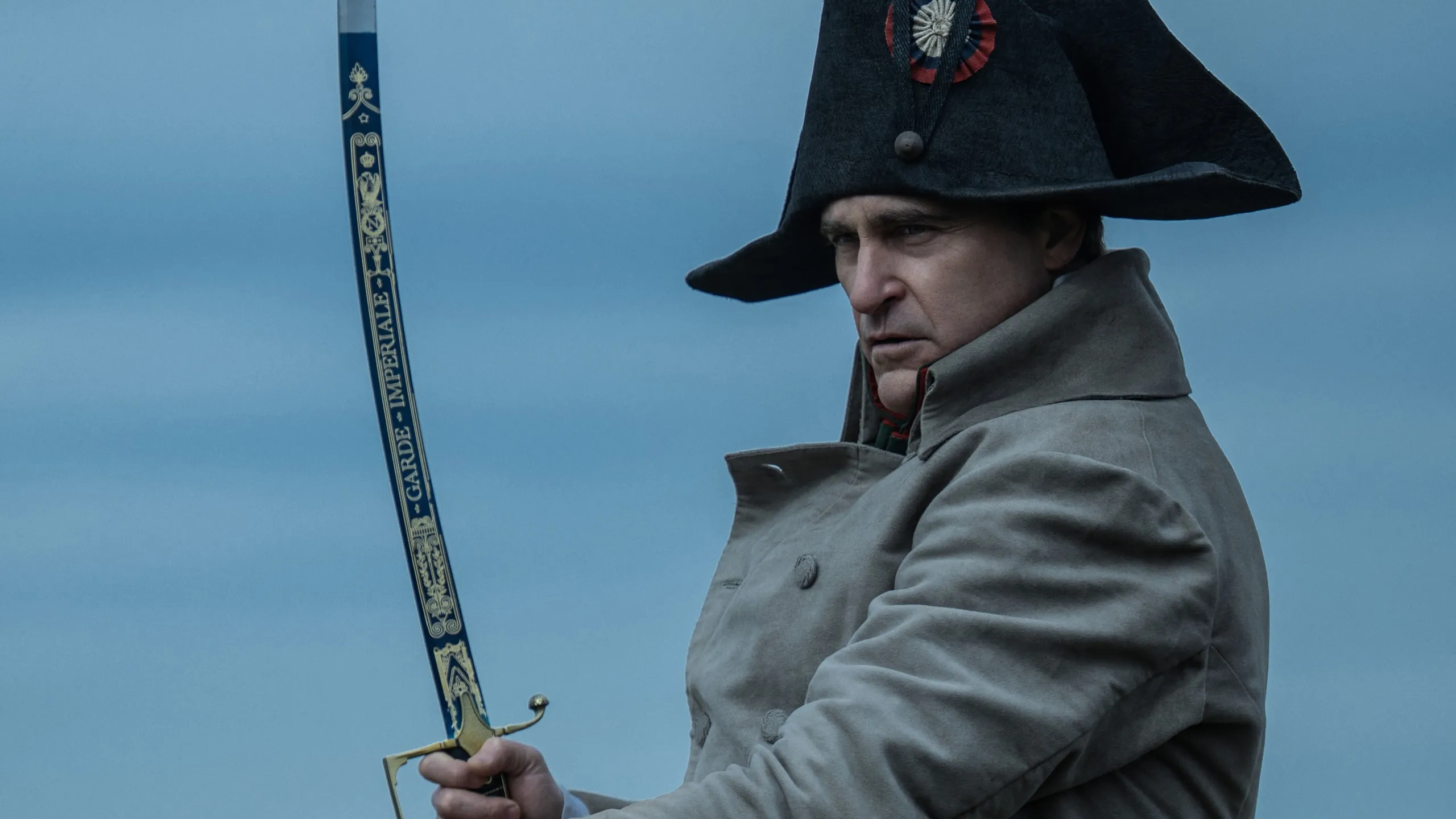
Film Review: Napoleon
Film Reviews
Napoleon
Director: Ridley Scott
Scott-Free Productions
In Theaters: 11.22
Ridley Scott’s 1492 was met with controversy when it was released 31 years ago, as the legacy of Christopher Columbus was being re-examined and condemned throughout the world, and everyone was asking, “why are we making a movie celebrating this guy?” While Napoleon presents a slightly less rose-y view of its subject, the comparison between the two films is frustratingly inevitable.
In 1793, Marie Antoinette is fed to the guillotine as revolution rips through France. In a nation at war with itself, Captain Napoleon Bonaparte (Academy Award–winner Joaquin Phoenix, Joker) sees an opportunity to climb the ladder to power by proving himself in battle. Napoleon will soon get his chance at the Siege of Toulon, where he masterminds a surprise attack on the Anglo-Saxon fleet, successfully securing the harbor and reclaiming the town for the Republic. The Captain is now a General, though his rapid ascent won’t stop until he becomes First Consult of the Republic and, eventually, Emperor of France. The greatest challenge he will face is not in facing off against any enemy, however, it is his tempestuous marriage to Joséphine (Vanessa Kirby, Pieces of a Woman, Mission: Impossible – Dead Reckoning, Part One), the love of his life and the one person who holds any power over him—if she cannot give him an heir, then she is the person he must divorce.
Scott, who teamed with Phoenix 23 years ago for Gladiator, is virtually peerless among living directors when it comes to making grand-scale, unapologetically bloody period epics, and as a piece of craftmanship, Napoleon hits its target with pinpoint precision. The cinematography, production design and costumes are stellar, and it’s easy for any fan of epic filmmaking to fall in love with the film for delivering on this level.
Unfortunately, Napoleon comes up rather short (no pun intended) with regard to giving a broader picture of who Napoleon was as a leader. Scott and screenwriter David Scarpa (All the Money in the World) focus exclusively on Napoleon’s military might and his marriage, ignoring the minor, little detail that he was a ruthless dictator who reinstated slavery in France and was responsible for other atrocities. While historians differ on just how extensive his crimes against humanity were, they were enough that simply listing the number of people killed in his bloody campaigns in the closing titles doesn’t suffice since the film still puts the focus solely on battle and makes it all seem far too palatable. It also provides little insight even into his tactical genius, apart from one reference to a knack for knowing where to place the canons.
Phoenix is top form, succeeding dramatically and earning some genuine laughs by playing the character as an eccentric, socially awkward man child who finds himself only when he’s on the battlefield or on Joséphine. Or behind her. Or under the dining room table with her … You get the idea. Kirby is magnetic and alluring as Joséphine, and she also brings a sympathetic sadness to the role. The relationship is decidedly codependent, as they alternate which is the dominant partner and which is the pathetically needy one. The film has a solid ensemble, including Tahar Rahim (The Mauritanian) as politician Paul Barras, Ian MacNeice (The Englishman Who went Up A Hill But Came Down a Mountain) and Louis XVIII, as well as a memorable appearance by Rupert Everett (An Ideal Husband, My Best Friend’s Wedding) as the Duke Wellington. Still, Phoenix and Kirby are at the forefront at all times, and all of the other characters are purely functional.
If you can ignore the nagging feeling that the film is once again bringing a level of romanticism to a monster, Napoleon is a sumptuous feast of sight and sound that is begging to be seen on the big screen. Much like the guillotine, it’s not a question of the quality of execution, rather, it’s whether it’s an effective means to an end or just a bad idea that should have been stopped before it ever started. –Patrick Gibbs
Read more reviews of historical dramas:
Film Review: Priscilla
Film Reviews: Killers of the Flower Moon